Women Wellness Spring Blog |
|
Have you ever asked your parents how much they had sacrificed for the family? What were the opportunities that they had given up? What was the cost? Are you willing to make the same sacrifice? Why? What did they say? How about you? We aren’t the same as our parents were 30 years ago. And society isn’t the same, either. We like to find new ways to balance and blend career and family. We are women, good at multitasking, after all. You might hear some people tell you multitasking is shifting tasks that drive us to nowhere. Yes and no. Women are capable of multitasking for various commitments and can work more organized under pressure such as cooking a meal while looking after young children and suddenly having to answer the phone. Or jump between incoming emails, phone calls, and assignments, while running in and out of meetings. Very often, men can’t understand why a woman can handle so many things simultaneously. Are you settling for less than you deserve? How settled are you? How will you describe yourself?
Could you have been a better mom and still built such a successful career? It might be difficult or unlikely, and not impossible.
8 Comments
Use Enneagram to Understand the Motivation Drives of Your Child that You May Not Know (Four to Six)9/29/2020 An enneagram is a powerful tool that helps us to understand the personalities and drives of behaviors. It can be regarded as one of the perspectives to understand our child better and become a more effective parent. We'd covered One to Three. Let's continue to check Four to Six. 4. The Tragic of RomanceThe drive is jealousy. Jenny is moody and affectionate. What’s happening around her can trigger different stories to her feelings. One day, she saw a white paper falling to the ground, she burst into tears. She told me this reminded her that her white cat had passed away. Very often, you can’t quite understand why she is hysterical to feel upset or feel happy suddenly. Key motivation: Attach to emotional needs before attending to anything else. Want to maintain certain moods to create and pursuit of beauty surrounding themselves. They used to express their individuality and withdraw to protect their self-image. Parenting Tips
5. The ObserverDavid is an introvert who dislike communicating with others. He has very few friends, perform not so good in school. When the first time I met him, he was only ten years old but concentrated on reading a book about the causes of earthquakes. He talked more to me at that time by asking me questions about the science of earthquakes. I might disappoint him as I knew very little about earthquakes. When I saw him on another day, he talked much less rarely speaking a word. They are the investigator interested in engaging energy on something worth their time and effort. When David regarded the communication with me is not fruitful to deepen his knowledge, he closed the little communication door with me to save his energy. Key Motivation: The drive is greedy. They view the world is a scarcity of resources in which everyone is competing for a share. Cost-effectiveness is important, want to possess the knowledge, to understand the environment, to have everything figured out as a way of defending the self from limited environmental resources threats. Parenting Tips
6. The Loyal SkepticJohn seems like being slow in everything. When the parent told the two children (John and his brother) to go out for dinner, John’s brother would move fast to dress up and ready to leave within 5 minutes. Whereas, John would move slowly, and came to ask his mom questions such as:
Key Motivation: The drive is fear. Want to have security, to feel supported by others with reassurance. They tend to test the attitudes of others toward them, to fight against anxiety and insecurity. Parenting Tips:
A woman can experience stress at her different life stages. There is no objective way to tell you if you had a good life, a good day, or a good hour. It’s not what happens to you but how you think about what happened. The narratives of asking yourself the right questions help you to shift your perspectives from the mist of troubles to feeling good about yourself. Michael Hyatt wrote the topic about the right questions to change our life. This post has borrowed the context from these right questions with my insights. Q1. What does this make possible?A career mom asks herself what does this make possible taking care of the baby and keeping the corporate job? A single mom asks herself what does this possible raising the kids without financial support from anyone. The right question helps you to re-orient your perspectives from the mist of trouble to the new possibilities. You get the inner resources that can figure out everything for yourself. “Just because it's dark it doesn't mean we're underground. It often means that no one has bothered to turn on any lights.” ~ Seth Godin What does this make possible building my own business? What does this make possible writing a book? What does this make possible buying my dream house? And so on... Q2. What if it’s not the end but a new beginning? What if you have a baby is not ruin your corporate career but start the next chapter you want the most? What if the end of the toxic relationship is the beginning of your new story with a happy ending? What if it’s a new beginning after I get fired? Reflection of the past is only good for one thing: learning. You can ask yourself about what if it’s not the end but a new beginning that helps you to drag out from the notion that you are stuck. You can see something you missed from a perspective that it’s the new beginning. Q3. What if the answer is over the next hill? When you’re in the middle of financial hardship; or When you’re exhausted with the resistant child; or When you have a terrible time with your hubby. When bad things happen, we felt like a load of bricks had dropped on us. We may not see the solution now. We ask ourselves what if the answer is over the next hill?. This question helps us to lengthen our horizons. If you don’t believe in yourself, you won’t be able to function. Don’t write yourself off. You may not see the solution now. Over time, you tend to work things out. Events are temporary. Your feeling of distress will pass. Your life will take you in new directions. Q4. What if I need this to prepare me for the next chapter? We go through changes in the stages of our life. We change jobs, shift careers, and change the role of a girl to become a mom. We feel anxious and frustrated: Why I’m the one to get fire? Why I’m so clumsy to handle the relationship? Why does my child get autism? Change is painful. We could trace our current position to every decision we have ever made. But it won't drive us anywhere. What you need to do is think about how you can get from where you are to where you want to be. Instead of asking why, why not change the question to what’s next. Whatever happened to me is preparing me for the next chapter. Just when the caterpillar thought the world was ending, she turned into a butterfly. (proverb) Q5. What if God know exactly what I need? The world is full of mysteries with unanswered questions. God teaches us that much of what we see is so complicated that we cannot understand why and how it occurred. When we are suffering from sorrow, anguish, and pain, religion gives us hope and peace of mind. We never know what is the plan from God arranges for us, but we do know God has always been there for us. Q6. What if God’s speaking to me in these troubles and blessing me? When you are frustrated under a difficult circumstance, we ask ourselves what if God’s speaking to me in these troubles and blessing me from the adversity. God has the plan for the purpose and meaning of our life. I love this story: God planted the fern and the bamboo seeds. The fern quickly grew from the
earth. Its brilliant green covered the floor. Yet nothing came from the bamboo seed. After 5 years the bamboo rose to over 100 feet tall. God tell the bamboo: “You had spent the five years growing roots. Those roots made you strong and gave you what it needed to survive. I would not give any of my creations a challenge it could not handle.” “Did you know, my child, that all this time you have been struggling, you have actually been growing roots? I would not quit on the bamboo. I will never quit on you.” “Don't compare yourself to others.” He said. “The bamboo had a different purpose than the fern. Yet they both make the forest beautiful.” We all as parents know that children, even babies, have distinct personalities:
How can we be sure that our nurturing is well suited to our child? An enneagram is a powerful tool that helps us to understand the personalities and drives of our children's behaviors. But please noted to beware never try to pick a certain kind of personality trait or behavior to fit in a specific category as labeling. Mostly, the key driver is not obvious to identify. It took me a long journey to identify the key driver for myself. Humans are complicated creatures. The same behavior may derive from the different underlying drives. How to identify the underlying motivation drive is extremely difficult. Therefore, you can regard it as one of the resources references to widen your perspective angle to understand your child better and become a more effective parent. Remarks: Enneagram is more complicated than it appears on the surface. If you're interested in this subject, suggest finding the expert for help. 1. The PerfectionistPeter would do everything his parent tells him to do. If you make the rule of requiring him to finish his homework before watching TV, then he would follow your rule strictly. These children view the world should operate with an ideal framework of rules that people should follow. If the other people are not working on that same standards would trigger their anger to judge and criticize. The other side of the coin is that they might appear stubborn and lack of creative thinking. Key motivation:Their drive is anger. Want to be right, to reform and improve everything, to be consistent with their ideals, to justify themselves, to be beyond criticism so as not to be condemned by anyone. Parenting Tips:
2. The GiverSusan is adorable as she knows quite well to do things that make other people feel warm and cozy. She had been so sweet to write a few nice words on the cupcake wrapper or reserved the last big apple for mommy to eat. These children would express their feeling by giving their love, helping others, and desire for others to respond to them. Key Motivation:Their drive is love. They want other people to like them and love them. Always advocating for love and believe that they know better than anyone else how to love you. Parenting Tips:
3. The PerformerPeter is hardworking who seems like always busy to do something. He performs very well in school, get straight A in many subjects. While the other children are playing hide and seek games, he gets more interest in playing certain types of games that can redeem gifts or can reward with value. In the world of these children, everything is a matter of completing a task. They aspire to find something to do on the condition that the work should have meaning. Maturity is faster than other same-age babies as you might expect they can stand in 6 months period. Winning in a competition is vital to them as it meant achievement. They want to get attention and to impress others. Key Motivation:Their drive is completing the task. Perform a role to complete tasks, to distinguish themselves from others, to have attention, to be admired, and to impress others. Parenting Tips:
If you're interested in continue exploring personality traits, key drivers, and parenting tips from Four to Nine, please stay tuned for the updated post next week.
While people use to describe men are rocks, women are like to be water. Men and women are beautifully different but made for each other. Just as the beauty where water and rocks come together. And yet, I’m not sure from when that women regard “tough’ is a praising word to tell we can do much work as any man. The name of the game is “I don’t need you” so that:
Women appear to be tough in career, personality, and relationships. We can do everything like men. Ever wonder woman attractiveness is not about her toughness. It's about her tenderness instead. Men yearn for women to love them tender from our feminine nature. They might recall the kind of soft and tenderness feeling from the memories with their moms and sisters time and again. My friend told me his wife was so tough that he doubted whether he had married a man, not a woman. Have you heard about the law of attraction? You attract the same thing to what you deliver. For instance, anger would attract anger. Love attracts love. How about toughness? Tough people attract the tough thing for them to tackle! Be nice to yourself. You don’t need to be tough all the time. What is your family money story? What is your financial habit? It’s not funny if you’re always struggling with money. How much money can I earn? How big is my bank account? Money is the cause of my anxiety. Why? If you’re broke, you lost your house, lose your family, lost your self-respect, and lost everything. You don’t want to get broke. Why I always feel like I’m on the verge of bankruptcy? What can I do differently about money? 1. Earn the MoneyWhen I worked in a corporate, I was underpaid. After I left my corporate life, I run my business without earning a decent profit. My friend told me the price of my product is too low. One day, my friend asked me what did I think about money? Or what is my concept about money? The wordings that pop-up in my mind are:
I can create the value to earn a lot of money. I deserve to own a lot of money. I promise XXXXX 2. Save the MoneyNo doubt about saving is a good financial habit. You won’t be panic if you keep a certain amount of money as a safety net to secure the cash flow in case of emergency or unexpected job loss. Are you earning money and saving it, and that’s it? If so, it seems like money is to become your goal. We are easy to confuse our desire for the feeling of fullness with the feeling of enough. The only satisfying state is full. Full doesn’t last, and it’s always desirable. Enough doesn’t feel like full that urge some people to keep chasing money to save it up for the feeling of fullness. Saving money is good, enough is okay. Money is energy. Let it flows and moving. 3. Spend the MoneyWhenever I tried to de-clutter my house, I was surprised why I had bought so many useless things I didn't need. Is it because online shopping has never been easier from the one-click shopping universe? Or maybe merely it is an easy way to release negative emotions. The advertisers, marketers, and the media make us believe that buying the expensive products is a way to uplift our status and taste. Social media is further amplified the wonderful life from our peers make us feel like we are in the state of not enough. How to avoid overspending?
4. Grow the MoneyNo doubt we are pleasure seekers. We get hooked on the pleasure comes from caffeine, tobacco, entertainment or premium stuff. Pleasure is short-term, addictive and selfish. It works on dopamine. When the debt is easier than ever to go into, why even consider sacrificing the pleasure for the long-haul benefits? Does the long haul will take care itself? It doesn’t. We have to define our context to prioritize our spending that can work for the money growth. Do you spend the money on the stuff that can grow your assets or pay for the liability? An asset is something you can be owned to produce value matter to you in the long run. For instances, buy a house is building your asset, pay the monthly rental is a liability. Spend the money on studying a training course for mastering a useful skill is building your asset. Buy expensive Hermes bag to believe that someone is watching you is a liability. Made better money decision on the truly important things. 5. Share the MoneyLife meant to us is not about money. Money is not the goal, and it is a tool to reach our goal. The money will take care of itself as it is a side effect of our effort to reach our goal. At this point, please don’t get me wrong to regard sharing money as merely donations. Money is energy, and let it flow in the direction of creating value that could benefit to yourself and others.
No mirror ever became iron again. No bread ever became wheat again. What is the importance of mother in child development? You may already hear about the below old story: When the child was 3 years old: He tripped over a stone in the yard and fell, crying. Mom A: Did you get hurt? Damn this bad stone! Don’t cry baby (she was desperate to stop the child from crying). The child cried even harder. In his understanding, the false was the stone. He felt pity for himself. Mom B: Stop crying! I will beat your butt harder if this happened again! The child learned to responsible for his carelessness. When the child was 4 years old: The child won’t eat the meal while watching TV for hours. He threw a tantrum when his mom urged him to eat the food. Mom A: She served the child as a baby by putting the food in the child's mouth (to avoid the dropping food stain the clothes). The child thought that life was so effortless. Mom B: She told the child, “If you don’t come to eat now, I will take away all the food. You get no food to eat until tomorrow.” The child learned to responsible for his misbehavior. When the child was 6 years old: The mom made a deal with the child that she would buy him one toy only. The child got an iron man. After a while, he attracted to another toy and urged his mom to buy the second toy for him. His mom rejected, the child was crying loudly, stumbled on the floor. Mom A: She felt embarrassed, gave-in to buy the second toy for the child. The child knew his strategy works regardless of promise. Mom B: She told the child, “I won’t buy it. The deal is a deal. Get out of here now.” The child learned to responsible for his choice. When the child was 8 years old: The mom did everything for her child by keeping the child inside a protective bubble to spare her a lot of anxiety. Mom A: The mom didn’t allow the child to wash dishes to prevent he broke the dishes up. The child never got a chance to participate in cooking because she feared the child would burn himself. When the child tried to wash his bag, his mom washed it for him as she worried the bag would not clean enough after washing. The child presumed that there was a lot of things he couldn’t handle by himself. Mom B: She taught her child how to wash the clothes to make it clean; How to wash the dishes to prevent breaking them; How to hold the hot food without burning himself. The child learned how to take responsibility for himself in his daily life. When the child was 10 years old: Mom A: She arranged to schedule numerous learning courses for him to be the stepping stone for winning in school. Learning was so painful caused him to hate schooling. Mom B: She told the child the key to studying was hard-working and concentration. She allowed him to play after finishing the homework. She encouraged him to read more books during his spare time. The child learned to responsible for his interests and hobbies. When the kid was 13 years old: The kid played a ball in the garden and broke the neighbor’s window. Mom A: She took him to apologize for the accident with the payment of compensation. After then she complained about the neighbor to take advantage of the accident to blackmail her. The kid thought it was no big deal to get others into trouble as long as you paid them money and apologized. Mom B: She took him to fix the neighbor’s window. The payment of the compensation deducted from his pocket money. The kid learned to responsible for his wrongdoing. When the kid was 15 years old: The boy asked his mom to buy him a piano. Mom A: She accepted. He got bored with playing the piano and never touched it after one year. The boy regarded he could get what he wanted, even if he had no money. He didn't know that his mom took three years to clear the debt for buying him the piano. Mom B: She hadn’t bought him a piano. Instead, she bought him a harmonica. She told her boy she would buy him a piano unless he was good at playing harmonica. The boy obsessed with the harmonica and never thought about buying a piano again. The kid learned to responsible for his insistence. When the boy was 19 years old: Mom A: She told him to study law in university in order to secure a promising career path. The boy used to follow what his mom told me to do. His mom wanted him to study in law school was because she wanted him to redeem her broken dream. Mom B: She gave him opinions to decide which subject he should study at university, and told him the decision should base on his interest. The boy learned to responsible for his future. When the boy was 20 years old: He asked his mom to give him money to buy an expensive mobile phone so that he could call her at ease. Mom A. She accepted. The boy regarded his mom as his ATM and totally neglected her desired to receive his call. Mom B: She told him the old one was still working well. If he wanted so much to buy a new one, he should use his own money. The boy worked a part-time job to get the money to buy a new phone. The new phone carried a sense of achievement more than the satisfaction from the phone. The boy learned to responsible for what he wanted. When the boy was 24 years old: Mom A: She helped him to find a job through her connection. He’d no idea she contacted so many peoples before he could get his job. The boy didn’t require to do any hard work. The job came to him effortlessly. He regarded the world operated as all gain, no pain. Mom B: The boy wanted to start his own business. His mom told him to work somewhere to gain more job experience before starting a business. Two years later, he raised the issue again. His mom told him to go ahead unless he could handle the worst-case scenario. She lent him the initiated capital and requested him to pay her back within four years. He accepted the deal and promised to buy her a house as a bonus. The boy learned to responsible for his career. When the boy was 27 years old: Mom A: The boy changed girlfriends frequently. The girls complained he was an irresponsible person. His mom told him he was perfect. Those girls were not justified to be his partners. Mom B: The boy brought his fiancée to meet his mom. She told him he deserved to get this beautiful woman to be his wife. As long as they loved each other, she would be happy. The boy learned to responsible for his relationship. When he was 32 years old: Mom A: The boy got a huge debt. His mom helped him to pay all the debt from her retirement fund. He knew that his mom would help him to solve all his problems. Mom B: His son’s business was a success. Not only did he pay her back all the money, and he also bought her a house to fulfill his promise. She burst into tears. He learned to responsible for his promise. When the boy was 35 years old. He killed a person and put to jail for life. His mom blamed everyone and asked why God had to punish her. You can guess what the story is trying to tell. No doubt mom A loved her son and wanted him to be happy. She did everything to protect her son from taking his own responsibilities. Her adult child won’t grow up until it was too late when everything couldn’t reverse. What are the best pieces of parenting advice ever? Tough, love, forgiving, or anything else. What some other mom does, but you will never do? What parenting advice you don’t believe?
What is your most fantastic family trip?Curiosity vs. Certainty The world of a child is never short of amazing to the discovery of the new food, new games, new people, and the new environment. Traditional schooling tries to tell the world is moving in the way of certainty. In school, the children are taught a lesson and then given a test. They clearly know the subject contents in the syllabus, and there will certainly be a test. After the kids pass the test, they will certainly move to the next upper grade. Who’s teaching the child what to do if a certain thing doesn’t happen? The world is moving in the way of giving you a test for you to get a lesson. The question is how to raise the children in a way that allows their minds are robust and resilient enough to survive in a world that is too loud, too cruel, too uncertain, and too fast to bear. How to do this? Traveling vs. Reading Traveling is a great way to learn the meaning of adventure, inclusiveness, and a big heart. Only those who risk going too far can possibly find out how far they can go (T.S Elliot). Vacation had become a routine for most families. It’s not about posting great travel photos on Facebook. It’s about exploration, about seeking adventure with our curious minds. As a way of training, you can allow your kid to responsible for the vacation to include arranging the schedule, destination, airline, accommodation, do the research, plan the itinerary, and estimate budget. Let them learn the failure when they are trying to solve interesting problems and build up confidence as well. A man who is traveling a thousand miles learns more than the one reading thousands of books. On the other hand, a man who is walking a thousand miles without learning is just a postman (proverb). Seeing, learning, discovery, exploring from the adventure is a treasure. Adventure vs. Security The flip of certainty is curiosity and adventure. Children are curious creatures. Overprotective parents try to build the boundaries blocking the children’s imagination do them no good at all. Michelle was my friend. She raised her first child and tended to think that anything could go wrong would go wrong. She would do everything to keep her child safe, perhaps too safe:
It turned out the child to become:
When she raised her second child, she managed to do something different. She allowed the infant to have more freedom to play and learn. The outcome is that the kid was more capable of solving problems with confidence.
Does an adventurous kid cause you trouble? Yes, maybe. How will you make your choice?
Slow Living to enjoy a lazy day. Live in the Present. 1. Go green. A lot of sunlight A lot of sunlight makes me feel alive. I live in a suburban town and enjoy to spend some hours on the sidewalk in the morning. My kids would like climbing the tree, scrabbling up trunks fearlessly into the branches, towards the tip-top, through a tangle of green limbs that swaddled them like a living hammock. Oh! Someone walks a weird skinny dog reckoning with a kindness smile to say hi with me. The kids have so much fun watching the little bugs crawl in and out of the pebbles. Or lie in the grass to feel the blades tickle their necks. When the sunshine hit my face with a cool breeze, I take deep breaths with full inhalation and exhalation. Tell my body and my mind that everything is ok. 2. Natural Aromas I like gathering leaves, flowers, or seeds that mean something to my family. Or fill up the pillow with the cypress cones to produce a clean woody energizing aroma. Cypress trees are tall, reaching heights of 140 feet, with small flowers and brownish-grey cones. The smell of the cypress cones makes you feel comfortable and stimulate feelings of joy and happiness as well. Aromatherapists believe it can calm your nerve during times of emotional stress. 3. Live in the Present You never really look at many good things around you when you are alive. Look around. How lucky we are to be alive right now. Taking a photo of a flower and share it on Instagram. It’s sad to read “chasing daylight: how my forthcoming death transformed my life” (by the former CEO of KPMG) to tell the story of a person who learned to live in the present when he was going to die. 4. D.I.Y Miniature Garden Ever feel that your eyes strain from too much screen time? Why not spend the time to make my miniature garden. I enjoy making my D.I.Y miniature garden so much that I can hardly put it into words. What sort of story I’m going to create? How about little teddy meets the lazy cat in the fairy garden? It was a chance to spend time on a day, without any worries and concerns, doing something interesting. The work helps me to be calm with peaceful concentration by discarding impatience and irritation.
Does your child is evil or an evangelist? When I told my child to share his toys or his candies to the others, he would say: “Why you always ask me to share my thing with the other, you don’t love me anymore?” “I don’t have that much. If I share it, I won’t have any left." “Why I have to share? I play the toy first, lets him play later after I don’t want to play.” I wonder why the child regards sharing is a negative thing. Share Means Lost?The traditional schooling tries to tell the children that the world operates by finite resources in scarcity. They are playing the zero-sum game. From the children point of view, share means lost. They adopted the scarcity model of pizza. I won’t have any left if I share it with you. Negative Experience To Distort The VirtueHelen was six years old. She shared the coloring pen to her classmate Susan. Susan never returned the coloring pen to Helen. When Helen asked for the return, Susan rejected it. Two girls fight. The teacher punished Helen because she initiated the fight. Helen got the narrative to tell herself:
The child might interpret the virtue as a negative thing. Help the child to learn no matter he or she is in a bad situation, never attacking the evil and cultivate virtue instead. Imagine when you feel like surrounding by darkness. It's not useful to attack it. Instead, you turn on the light can help you more. Abundance vs. ScarcityImagine your child rejects to share the toy with the peer. She regards sharing toys with others mean lost. It’s more useful to help the child to think if I share with you, we will both have it. Sharing with others won’t mean loss. It means to take turns playing the toy. The conversation can be like this… "Mommy understands your feeling. You had played this toy already. The other children haven’t played this toy yet. Let’s the other child play it, and you wait for your turn again" ~~~~~~~~~~~~ Mom: This toy is played by whom moment before? Child reply: Me. Mom: You played the toy just before. Let's another child to play it. You wait for a while, and then you take your turn later. More Doesn't Mean BetterThe mindset of abundance feels like you have more than enough to enjoy your life. You don’t need to grasp as much as you can. It's not uncommon the first question from a child when someone gives him something, he would say I can get only one? Or can I get another one? The fact is more doesn't mean better. Some other children get the behavior that when they desperately want a specific toy, their whole world revolves around getting this one toy, or they would feel like he lost his universe. Once their parents buy that toy for them, their joy fades out. They want something else. If they don't appreciate what they have, more is not a good thing and won’t make them happier. It’s more useful to let the children feel grateful for what they own at present and what they may get in the future. They can have great things and not fear someone would take away from them. If the child did resist the concept of sharing, try to change the perspective from sharing to exchange. You can talk with the child something like this: “You play this toy for a long time already, why not exchange the toy with John? You see, his toy can speak.” “You haven’t played this one before! His toy seems very interesting. Exchange your toy with John. You and John will both have the fun.” Practice GratitudeWhy did some children find it difficult to show gratitude towards other people? They take it for granted for whatever great things happen to them. Mostly, you hear more about the complaints from them than to give thanks for dinner, thanks for the ride.... Practice gratitude helps the kid feeding their brains with habitual positive oriented thinking instead of getting stuck in a pattern of negativity. The children learn whatever happened to them are gifted. Sharing the positive stories make them feel connected, and spread the love. It’s good to have the dinner conversation about sharing three things they were grateful on that day (don’t cheat and settle for two!). My girl might tell me something like:
|
CatherineDigital marketer, writer, editor, feminine optimistic style, pursuit of happiness, addict to coffee. CategoriesArchives
February 2024
|
|
Privacy Policy
|
Disclaimer
The information contained in this website is for general information purposes only. We make no representations or warranties of any kind, express or implied, about the completeness, accuracy, reliability, suitability or availability with respect to the website or the information, products, services, or related graphics contained on the website for any purpose. Any reliance you place on such information is therefore strictly at your own risk.

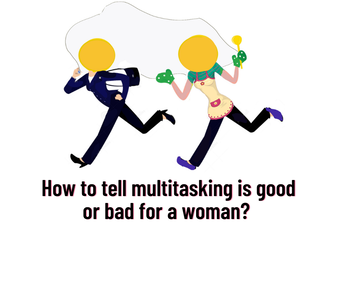
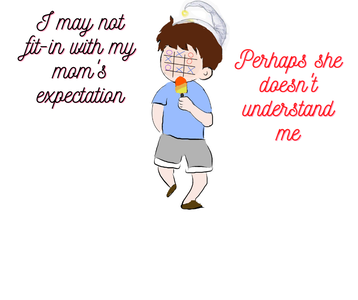
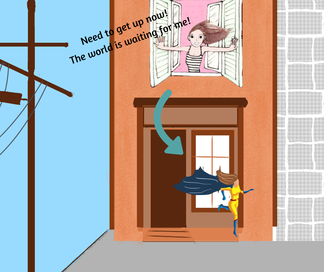
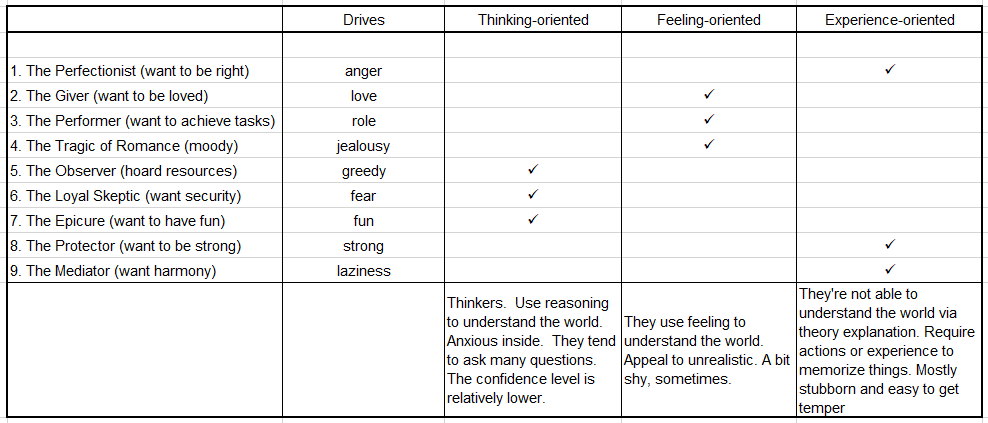
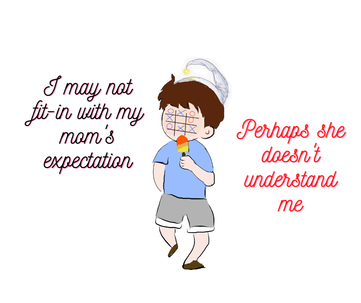
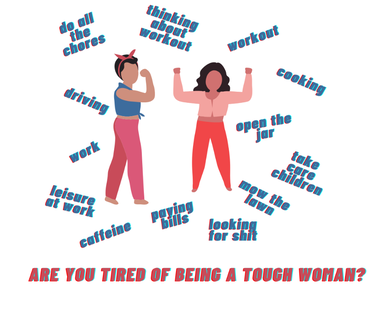
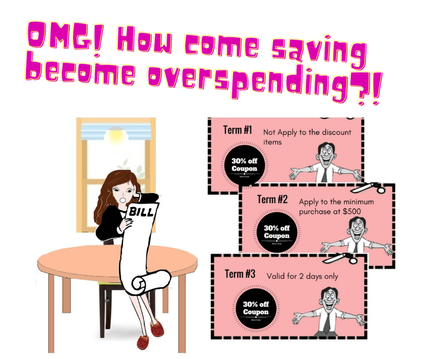
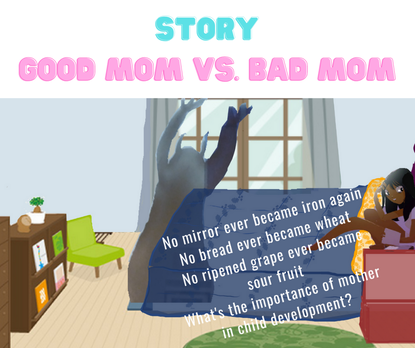


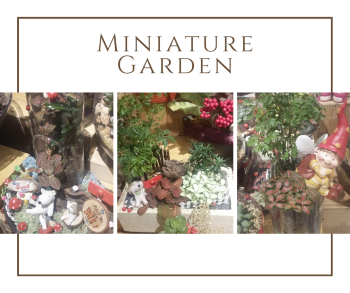
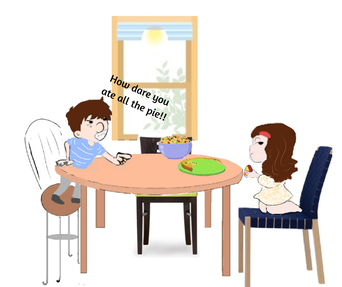
 RSS Feed
RSS Feed